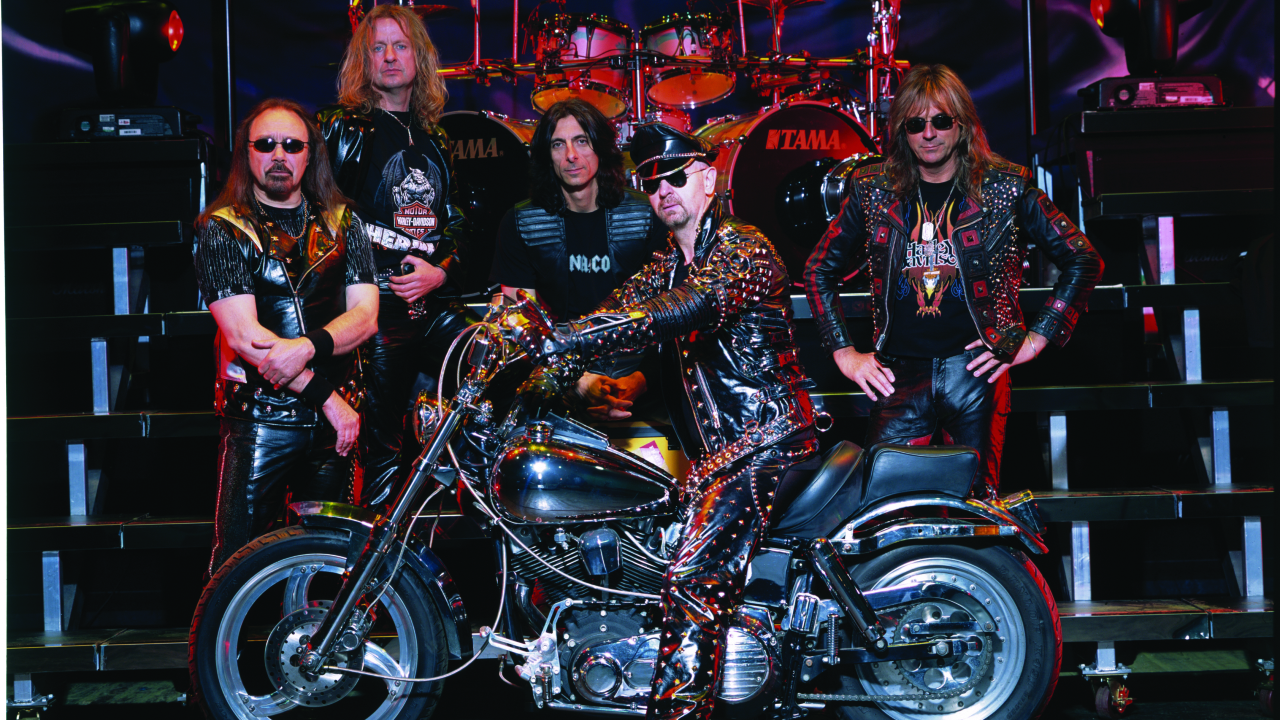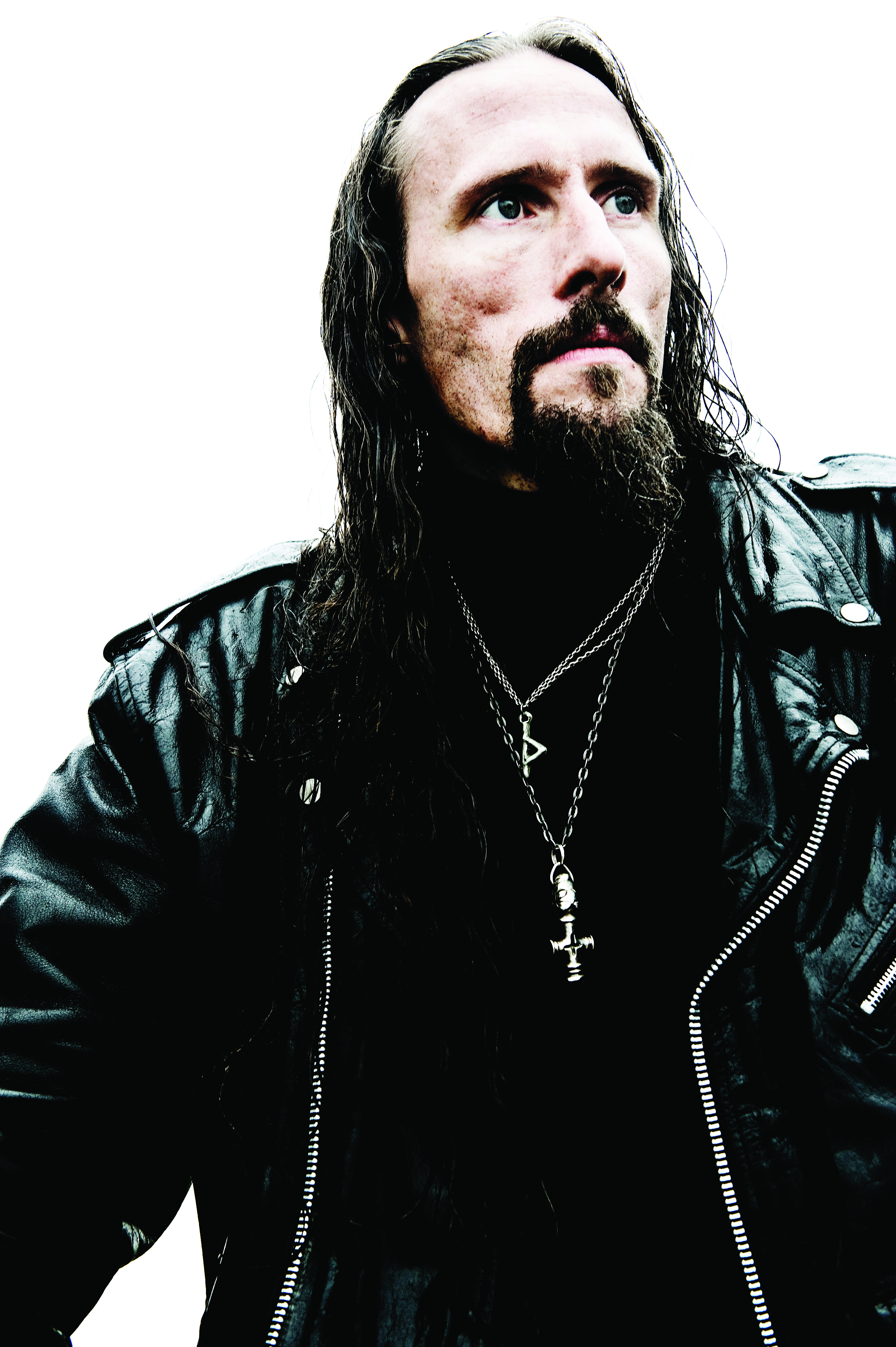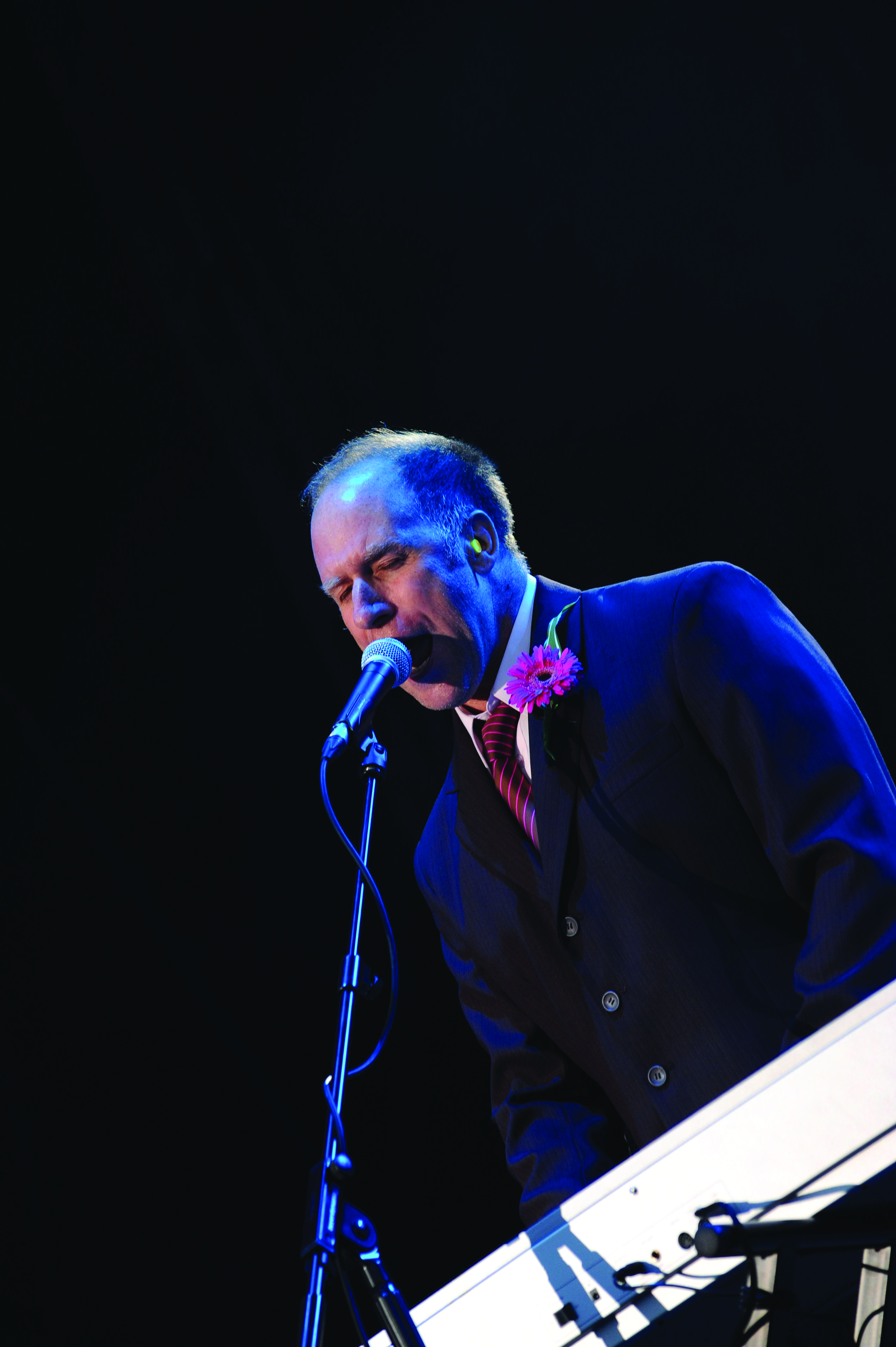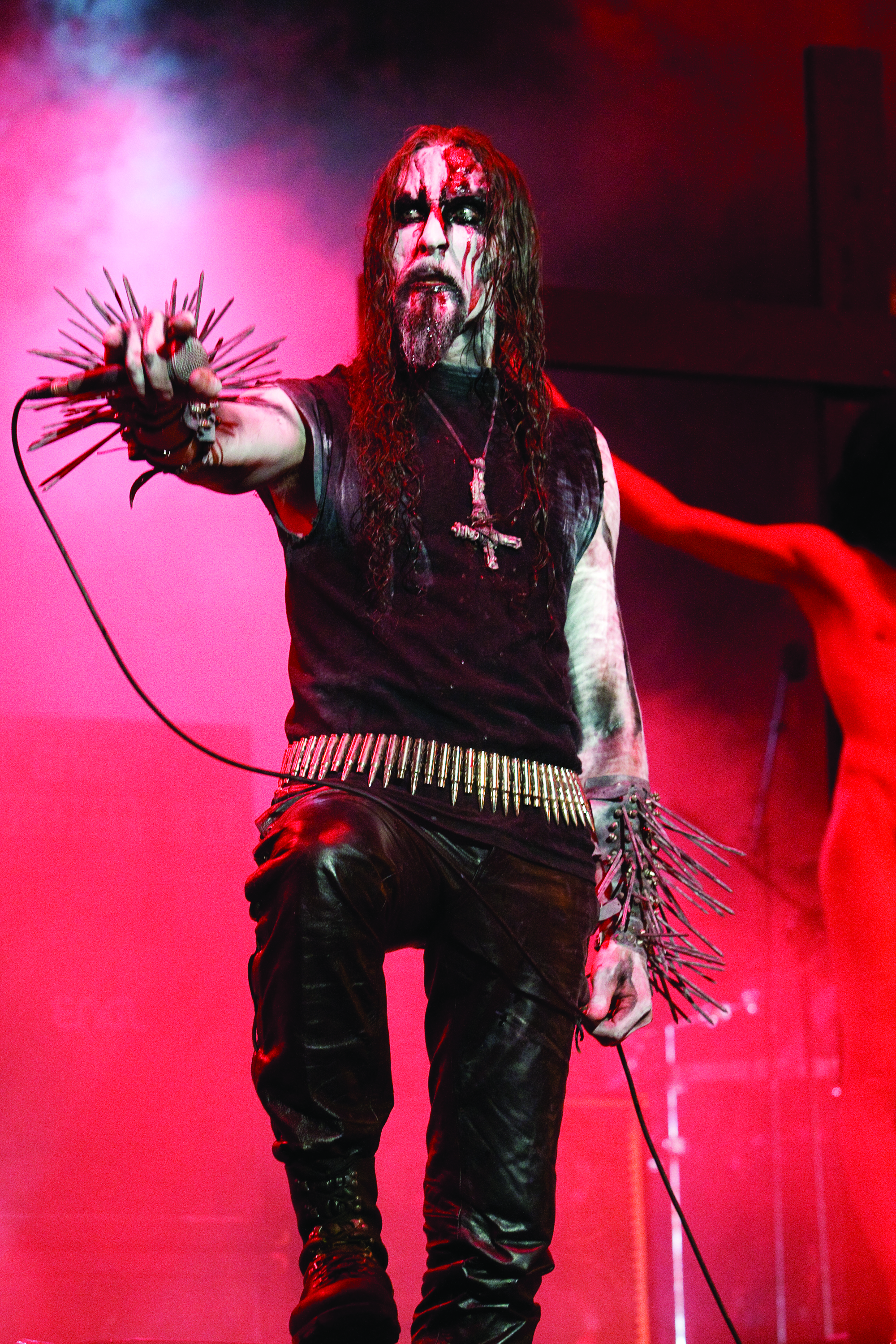United: Changing Attitudes Toward Homophobia In Metal
As much as we’d like to think the metal church is a place for all to worship, homophobia sadly exists. We chat to Cynic’s Paul Masvidal about how attitudes are changing.

Select the newsletters you’d like to receive. Then, add your email to sign up.
You are now subscribed
Your newsletter sign-up was successful
Want to add more newsletters?

Every Friday
Louder
Louder’s weekly newsletter is jam-packed with the team’s personal highlights from the last seven days, including features, breaking news, reviews and tons of juicy exclusives from the world of alternative music.

Every Friday
Classic Rock
The Classic Rock newsletter is an essential read for the discerning rock fan. Every week we bring you the news, reviews and the very best features and interviews from our extensive archive. Written by rock fans for rock fans.

Every Friday
Metal Hammer
For the last four decades Metal Hammer has been the world’s greatest metal magazine. Created by metalheads for metalheads, ‘Hammer takes you behind the scenes, closer to the action, and nearer to the bands that you love the most.

Every Friday
Prog
The Prog newsletter brings you the very best of Prog Magazine and our website, every Friday. We'll deliver you the very latest news from the Prog universe, informative features and archive material from Prog’s impressive vault.
As metalheads, it’s fair to say that we tend to pride ourselves on the unity that our music can inspire.
Often it’s second nature; from the start there is an ‘us-and-them’ stance forced upon fans when they begin growing their hair or wearing a disproportionate number
of black t-shirts. By being active in the metal scene you are, even in a small way, embracing a counter-culture that provides an outlet and voice for both fans and artists from a wide range of cultural and personal backgrounds.But if we look a little closer, we have to acknowledge that some voices are allowed to speak more loudly than others. Historically, gender has been one issue, but the role of women has certainly improved greatly thanks to artists from Arch Enemy to Secrets Of The Moon to Within Temptation. Similarly, while metal was traditionally not just male-dominated, but white male-dominated, the apparent universality of metal has meant that other ethnicities have gradually become more visible thanks to heavy-hitters such as Sepultura, God Forbid, Mystifier, Suffocation, Animals As Leaders, Killswitch Engage, Ill Niño, Boris and Skindred.
But there’s still one group many seem keen to keep out of the ranks – one even considered OK by some to disrespect: homosexuals. This was underlined only this year when guitarist Paul Masvidal and drummer Sean Reinert of hugely respected progressive death metal act Cynic (and at one time Death) came out via an article in the LA Times. While the reaction was largely positive, some responded to the news by taking cheap shots at the group, in particular Vik Kuletski of guitar company Vik Guitars, who posted a Facebook update stating that he now knew what had “always been turning [him] off headless guitars”, a reference to Cynic’s famous use of such instruments. He was quickly challenged, most notably by Scar Symmetry’s Per Nilsson, who posted a comment criticising him for knocking both headless guitars and gay people in one post. Vik’s response? “I don’t like either. Live with it.” While of course everybody is entitled to their own opinion, in this case it might have been better for Vik to keep his to himself, as it caused a sizeable backlash within the guitar community, with Periphery publicly cancelling an endorsement with the company, describing themselves as “firm supporters of LGBT rights” who found Vik’s sentiments “offensive and disgusting”.
Sadly it doesn’t end there. Some of our most talented metal musicians have made statements that wouldn’t be tolerated if they were aimed at, for example, a racial minority. From Sebastian Bach’s notorious ‘AIDS Kills Fags Dead’ shirt to Slayer’s Kerry King describing Machine Head’s Robb Flynn as “singing like a fag” and At The Gates’ Adrian Erlandsson as “hitting like a fag”, through to Dave Mustaine’s recent statements opposing gay marriage, it’s fair to say that the metal scene might sometimes seem a pretty unwelcoming place for homosexual listeners.

The irony, of course, is that metal has had some big contributions from gay musicians. Roddy Bottum, keyboard player for Faith No More, came out in 1993, putting into light the song Be Aggressive and its lyrics, ‘You’re the master/And I take it on my knees/Ejaculation/Tribulation’, not to mention the chorus which simply repeats the phrase ‘I swallow.’ The (in)famous black metal vocalist Kristian ‘Gaahl’ Espedal, then of Gorgoroth, revealed he was gay in 2008, a shocking move given his elevated position in a scene where at least two high profile musicians were involved in murders with alleged anti-gay motivations. Most obviously of all, there’s the Metal God himself, Rob Halford of Judas Priest, whose huge influence upon metal’s aesthetic – specifically the leather, chains and studs style – drew from the look of the gay S&M scene of the time.
“His fetishising of the whole leather and motorcycle culture… I mean, I saw that as a kid growing up in big cities and you always associated that with being gay,” comments Paul Masvidal. “He turned it into a metal thing and it’s interesting how he was able to play with that and people weren’t joining up the dots. Now [the look] is commonplace and to think it was inspired by a gay man’s vision is kind of cool. It’s such a play on perception and it breaks down these preconceived stereotypes.”
Sign up below to get the latest from Metal Hammer, plus exclusive special offers, direct to your inbox!
The breaking down of stereotypes is perhaps key here. The perception of all gay men as fabulously camp – and therefore rather unappealing in a metal context, regardless of sexuality – is probably as inaccurate as some indie twat accusing all metal fans of being uneducated idiots. Gaahl was certainly something of a fist in the face of the usual preconceptions; being undeniably “masculine” (indeed, boasting a rather disturbing history of extreme violence), his coming out definitely challenged people’s mental image of what a gay man looked and acted like, even if there was a small but inevitable backlash.
“I thought it was cool that he was talking about it,” says Paul, before half-joking: “It’s almost like if you’re really black metal you should be gay. That’s Satanic, that’s anti-Christian – they hate that. So it was shocking that there was any homophobic response, but it just pointed to the reality of the scene, where a lot of it is just posturing anyway. Then there’s the ignorance of the ‘metallic macho stance’, where everyone is trying to be tougher than the next guy and the gay thing is associated with femininity. People forget that there are so many subcultures of gay that have nothing to do with that.”
“I don’t know why sexuality should be seen so much as a danger for anyone,” was Gaahl’s reaction when interviewed in the book Black Metal: Evolution Of The Cult. “I don’t think people should care what happens in a relationship between two people that they don’t have anything to do with – why should they? It’s really weird, but I don’t think it’s just black metal, I don’t think it’s just metal, I think humanity has always been this way… [For me the reaction] has been mainly positive… but I’ve always seen it that way that if people don’t dare to greet you no matter what, then you shouldn’t waste too much time on them either.”
Paul explains that Cynic themselves have been blown away by the response received
in the last month or so, relating one example of an email received from a fan in his early 20s who had been struggling with his sexuality and only found the courage to tell his family after Paul and Sean went public. It also seems that preconceptions have been destroyed in some of the minds of those who would once have opposed them.
“I got a message from a kid,” Paul recalls. “He said, ‘I grew up disliking gays, I hate your parades, I think it’s abnormal behaviour, but I read your article and you’re my favourite guitar player. It literally woke me up that here you are, this human being who’s inspired me in so many different ways, and you’re homosexual. I have to rethink this whole thing and the way I’ve been viewing this culture since I was a kid.’”

While Paul doesn’t believe in coincidences, he acknowledges it’s curious that Cynic should contain two gay members (and the two have no romantic connection, it should be noted). It’s telling that both dated and even slept with women while also burying themselves in music – partly a reaction, the guitarist explains, of the hostile rock and metal scene of the late 80s.
“The cliques we were hanging out with… there were a lot of unconscious homophobic comments happening all the time, and it wasn’t OK. We were like, ‘Wow, OK, these people don’t accept this,’ so we had to retreat and be quiet about it. I think Sean and I aligned with that and we just poured ourselves into becoming better musicians. It definitely motivated us and pushed us in a way that only things that get shoved under can do. That’s a constructive use of something you’re not dealing with.”
Rob Halford himself only came out in the late 90s, and has said that he feels it would have been much harder to do during the 70s or 80s. He has recently been quoted as saying that for him, going public was the best feeling because it meant that he could live as himself, but also acknowledges just how difficult that can be, even today. He has praised Cynic for their recent statements and sees that as part of a helpful process where fans – and perhaps the world at large – can increasingly see that being part of a sexual minority doesn’t have to stop people being successful. And, of course, statistically speaking it’s certain that there are many musicians within the metal world who are gay but have chosen not to come out. Paul confirms that he has periodically been reminded of this during his career.
“There’s been a few,” he says, “one in particular who is fairly well known. But everyone has their own journey and we have to fend for ourselves, ultimately. And it’s not like you can detect it, it’s not the one wearing a certain pair of trousers or who acts a certain way – it might be the one you least expect.”
Paul may treat the latter point with humour, but the observation highlights how many people in the scene may feel they can’t be truthful with those around them. Interestingly, Halford recently said that he doesn’t consider the metal scene to be any more homophobic than society in general, and that regarding the latter, huge leaps forward have been made over the last few decades. Paul explains that he stopped hiding his sexuality from those around him in about 1991, but nonetheless only recently chose to come out in a more public way. So, in his opinion, are things improving?
“Every step is one step closer, I guess, to a time when you don’t have to do this,” he ponders, “but while we are a publicly persecuted minority… People forget that you have kids killing themselves every day in homes where their parents are saying, ‘This is wrong,’ so it’s a real problem and a real issue. I’d like to believe that things are improving and that people are becoming more awake. In the metal scene I think it will trickle down as well – I mean, look at us,” he laughs, “two guys who are part of death metal history were gay men. I think it’s showing that just because we’re gay, we’re not fitting into some mould that people imagine.”

Cynic’s Kindly Bent To Free Us is out now via Season Of Mist and Judas Priest’s Redeemer Of Souls is out now via Sony

WHAT’S LOVE GOT TO DO WITH IT?
We asked Melinda Cavaliere, police psychologist and friend of Hammer, to explain the psychology behind homophobia.
What causes people to be homophobic?
“Homophobia can be explained from many points of view: social, cultural or psychological. Some people have fixed ideas on how the world should be, and something like being gay can be a challenge to their false sense of stability where the notion of ‘different’ makes their world shake.”
Why would one person feel they have a say in someone else’s life?
“Sometimes, instead of discussing their anger or personal issues, people choose to project them to a scapegoat, for example people of a different sexuality or race. Homophobia is not only in the metal scene and I don’t think it can be pinned down to any group. I think of metal as a world of rebellion and freedom from convention!”
